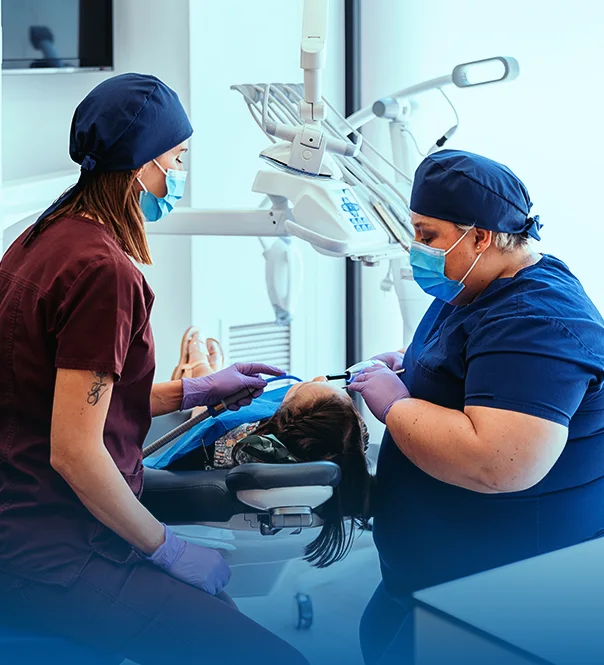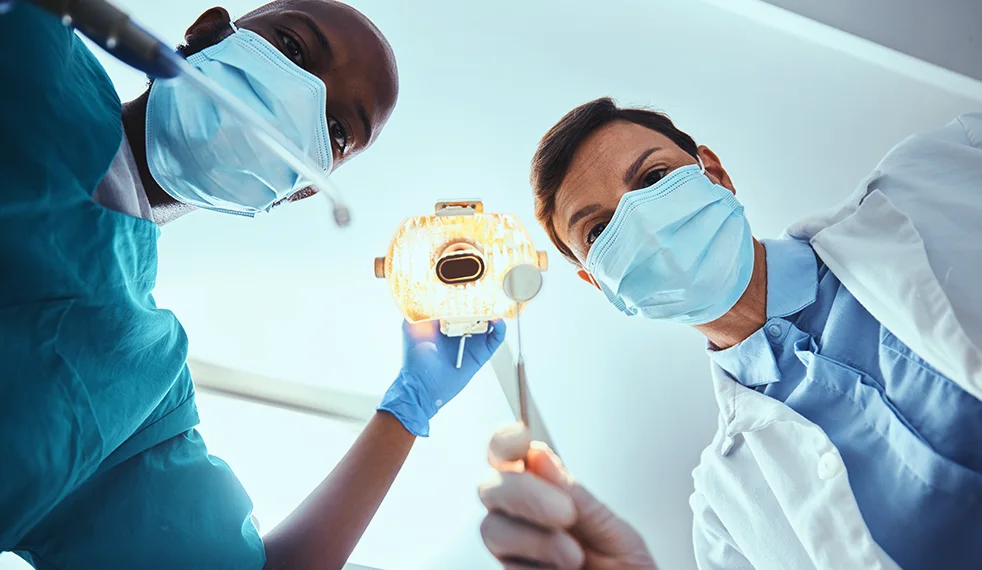About Periodontology
Advancing periodontics through leadership and advocacy.
What is periodontology?
Periodontology is a dental specialty that focuses on the prevention, diagnosis, and treatment of periodontal diseases affecting the gums and supporting structures of the teeth.
What is a periodontist and what do they do?
A periodontist is a dentist who has completed an additional two to three years of specialized training beyond dental school to treat oral inflammation and complex gum conditions. They are trained to place dental implants surgically and perform cosmetic periodontal procedures. They work closely with general dentists to provide patients with optimal oral health care.


Periodontal Diseases
Periodontal diseases are bacterial gum infections that damage the fibers and bone supporting your teeth.
Bacterial plaque is the main cause. If not removed, it hardens into tartar, needing professional cleaning.
Gum diseases often start painlessly but can destroy bone and tissues, leading to serious oral health issues.
Common Signs of gum disease include bad breath, bleeding gums, loose teeth, and changes in bite. Over 75% of adults over the age of 35 are affected.
Check out our Frequently Asked Questions page for more information about periodontology, gum disease, and what a periodontist does including treatment options!
What is the Treatment
Your Periodontal Treatment Journey
Your first visit is an information-gathering session where your periodontist reviews your medical and dental history, social habits, and oral hygiene routine. They will ask about your concerns with your gums, teeth, and smile. A thorough exam will check your oral tissues for irregularities or cancer, measure tooth mobility, gum colour and tone, pocket depths, and note any recession or root exposure. These findings, along with radiographs, will help form your diagnosis and treatment plan.
- Comprehensive oral assessment
- Periodontal diagnosis and prognosis
- Discussion of treatment options, benefits, and risks
Periodontal Diseases
Understanding
Periodontal Diseases
01
Periodontal Diseases
These are bacterial gum infections that damage the fibers and bone supporting your teeth.
02
Main Cause of Disease
Bacterial plaque is the main cause. If not removed, it hardens into tartar, needing professional cleaning.
03
Disease Progression
Gum diseases often start painlessly but can destroy bone and tissues, leading to serious oral health issues.
04
Common Signs
Signs include bad breath, bleeding gums, loose teeth, and changes in bite. Over 75% of adults over 35 are affected.

